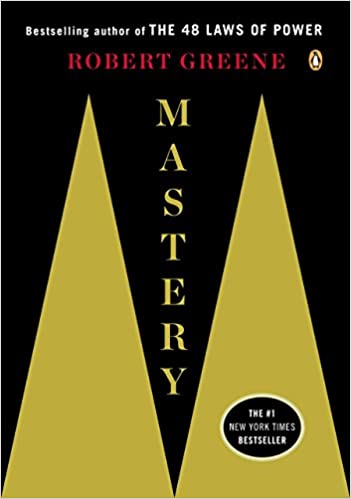There are many different ways of learning. When it comes to mastering new skills, you usually need instruction before you get started. However, the best way of learning anything is to try it for yourself as soon as possible.
Learning by doing is also called experimental learning and according to educators, is always the best way to learn.
As Richard Branson said,
“You don’t learn to walk by following rules. You learn by doing, and by falling over.”
So, whatever you are trying to learn, putting in the time doing it will certainly pay dividends
So, let’s check out 5 reasons why learning by doing is the best method to master new skills.

Mastery
by Robert Greene
⏱ 11 minutes reading time
🎧 Audio version available
A new skill takes practice
Nothing worth learning is easy, so whether you are learning an instrument, a language, or a new skill, you need hands on experience to progress. Obviously, you may need instruction at first, but once you understand the basic steps, it is important to get started as soon as possible.
Practicing a new skill gives you the experience of what it would be like to be an expert and any progress will keep you focused and keen on what you are doing.
For example, learning a musical instrument requires multiple skills. You need to be able to physically reach notes with your fingers so you need to achieve muscle memory, and this is just as important as an academic understanding of how the notes fit together.
When you practice something yourself you can refine your technique until you get it right. Without learning by doing, you will never be able to progress because a practical skill needs practice and perseverance. So, stick with it.
Learning by doing is far more engaging and memorable than learning by instruction
Many people struggle with absorbing information through books, lectures, or lessons. In some cases, a student may have even read all the information they need to know, but once they become overloaded with facts and information, it can be hard to recall the relevant information.
By contrast, learning by doing enables the learner to make sense of instructions. When you are forced into a situation, or “thrown into the deep end” it is far easier to recall the relevant information. Suddenly, it all makes sense on a practical level.
Learning by doing enables learners to go through the learning process of effort, making mistakes, reflection on how performance could be improved, and it helps them to find their own strategies to refine performance.
Learning by doing is a personalised experience
When you learn by doing, you do it the way that makes the most sense to you, which might not be the same as other learners. If you are taking a class with a teacher, they will be able to see where your strengths and weaknesses lie and provide personalised strategies to help you.
If you are learning alone, you can choose the way that suits you best. For example, if you were learning a new culinary skill, you could try cooking along to a video. Other people will prefer to read and follow instructions . Whatever feels easiest for you is the best policy, as long as you actually do it yourself and accept that, if the results aren’t perfect this time, you will learn from your errors, and improve in the future.
Learning by doing is fun
You want to learn this new skill, so you probably cannot wait to get some hands on experience and try it out for yourself. A deep knowledge of anything requires a combination of understanding how to do it and the application of putting into practice what you have learned.
You will find that, once you have started learning by doing, the background knowledge you need is far easier to absorb. This is because learning by doing is fun. It gives us a reward because we enjoy the hands on experience, so we are for more likely to be keen on learning how to do it better. A combination of learning by doing and traditional instruction methods is the best way to achieve a deep understanding of a new skill.
Learning by doing helps build your confidence
Once you step out of your comfort zone and dive into hands on learning, you will make mistakes for sure, but this is part of the learning process. Once you have successfully mastered a new skill, even at a basic level, it will help build your confidence. You may not have realised that you had it in you to succeed, so will carry this confidence with you to your next project.
It really doesn’t matter if your initial attempts are frustrating. After all, learning how to ride a bike, for example, doesn’t mean that you can now become a professional cyclist any more than learning the piano will turn you into a concert pianist. Remember that we all have to start somewhere and everyone who is at the top of their field, once went through the same process as you.
The bottom line…
The bottom line is that learning by doing is a vital component of learning any new skill. The secret is to persevere, work hard, and practice; that way you can achieve anything if you want it badly enough. As we learn new skills we may hit difficulties along the way, but by combining learning by doing with instruction from experts, we can all master a new skill.
What Is Snapreads?

With the Snapreads app, you get the key insights from the best nonfiction books in minutes, not hours or days. Our experts transform these books into quick, memorable, easy-to-understand insights you can read when you have the time or listen to them on the go.


